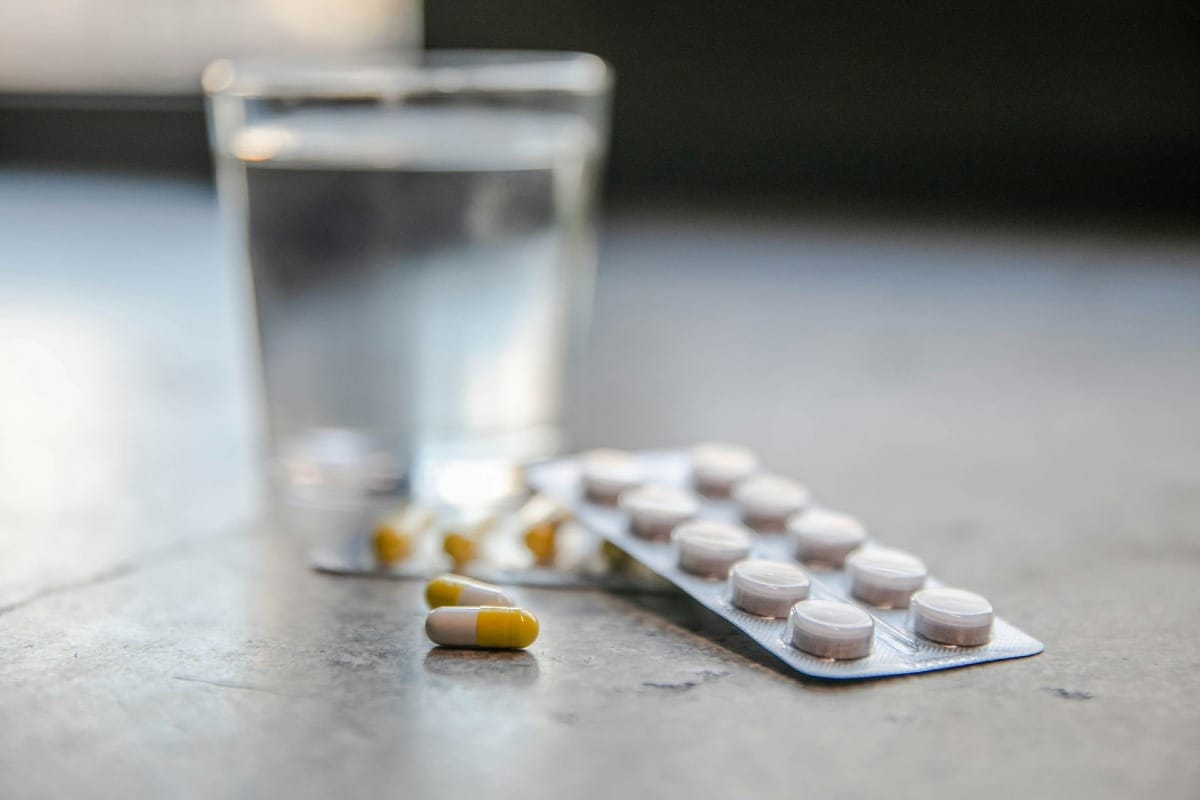Probiotics, often referred to as "friendly" gut bacteria, have gained significant attention in recent years for their potential to improve various aspects of human health. While most people associate probiotics with digestive health, emerging research suggests that these beneficial microorganisms may play a crucial role in supporting cardiovascular and metabolic well-being. This article delves into the fascinating world of probiotics and explores how they work to enhance our heart health and metabolic function.
Understanding Probiotics and the Gut Microbiome
Probiotics are live microorganisms that, when consumed in adequate amounts, confer health benefits to the host. These beneficial bacteria are naturally present in our digestive system and can also be found in certain foods or dietary supplements. The most common probiotic strains belong to the Lactobacillus and Bifidobacterium genera, although other species like Saccharomyces boulardii (a yeast) are also used as probiotics.
The gut microbiome: A complex ecosystem
The human gut microbiome is a vast and intricate ecosystem comprising trillions of microorganisms, including bacteria, viruses, fungi, and other microbes. This complex community plays a vital role in various physiological processes, including digestion, immune function, and even mood regulation. The balance and diversity of the gut microbiome are crucial for maintaining overall health and well-being.
Factors influencing gut microbiome health
Several factors can impact the composition and health of our gut microbiome:
- Diet
- Antibiotic use
- Stress levels
- Sleep patterns
- Environmental factors
- Genetics
Maintaining a healthy gut microbiome through probiotic supplementation and a balanced diet can potentially influence various aspects of our health, including cardiovascular and metabolic function.
Probiotics and Cardiovascular Health
Recent research has uncovered a fascinating link between gut health and cardiovascular function, often referred to as the "gut-heart axis." This connection suggests that the state of our gut microbiome can significantly influence heart health and vice versa. Probiotics may play a crucial role in modulating this relationship.
Mechanisms of action
Probiotics may support cardiovascular health through several mechanisms:
- Reducing inflammation: Chronic inflammation is a known risk factor for cardiovascular disease. Certain probiotic strains have been shown to possess anti-inflammatory properties, potentially reducing systemic inflammation and supporting heart health.
- Lowering cholesterol levels: Some probiotics can help reduce cholesterol levels by breaking down bile in the gut, which forces the body to use cholesterol to produce more bile salts. This process may lead to lower overall cholesterol levels.
- Regulating blood pressure: Probiotics may influence blood pressure regulation by producing bioactive peptides that can affect the renin-angiotensin system, a key regulator of blood pressure.
- Improving endothelial function: The endothelium, the inner lining of blood vessels, plays a crucial role in cardiovascular health. Some studies suggest that probiotics may help improve endothelial function, potentially reducing the risk of cardiovascular events.
Research findings
Several studies have investigated the potential cardiovascular benefits of probiotics:
- A meta-analysis of 14 studies found that probiotic supplementation was associated with a modest reduction in total cholesterol and LDL ("bad") cholesterol levels.
- Another study demonstrated that consuming probiotic yogurt for 8 weeks led to significant reductions in total cholesterol and LDL cholesterol in individuals with type 2 diabetes.
- Research has also shown that certain probiotic strains may help lower blood pressure, particularly in individuals with hypertension.
While these findings are promising, it's important to note that more research is needed to fully understand the extent of probiotics' impact on cardiovascular health and to determine the most effective strains and dosages for specific cardiovascular outcomes.
Probiotics and Metabolic Health
The gut microbiome plays a significant role in regulating metabolism, influencing processes such as energy extraction from food, glucose homeostasis, and fat storage. Probiotics may help support metabolic health by modulating the composition and function of the gut microbiome.
Mechanisms of action
Probiotics may influence metabolic health through various pathways:
- Improving insulin sensitivity: Some probiotic strains have been shown to enhance insulin sensitivity, potentially reducing the risk of type 2 diabetes and metabolic syndrome.
- Regulating appetite and satiety: Certain probiotics may influence the production of hormones that regulate appetite and feelings of fullness, potentially supporting weight management efforts.
- Modulating fat metabolism: Probiotics may affect the expression of genes involved in fat metabolism and storage, potentially influencing body composition.
- Reducing inflammation: As with cardiovascular health, the anti-inflammatory properties of certain probiotics may help mitigate chronic low-grade inflammation associated with metabolic disorders.
Research findings
Several studies have explored the potential metabolic benefits of probiotics:
- A systematic review and meta-analysis of 12 randomized controlled trials found that probiotic supplementation was associated with significant reductions in fasting blood glucose, insulin levels, and insulin resistance in individuals with type 2 diabetes.
- Another study demonstrated that a specific probiotic strain (Lactobacillus gasseri SBT2055) led to significant reductions in abdominal fat and body weight in overweight adults.
- Research has also shown that certain probiotic strains may help improve lipid profiles, including reductions in triglycerides and increases in HDL ("good") cholesterol.
While these results are encouraging, more research is needed to determine the most effective probiotic strains and dosages for specific metabolic outcomes.
Choosing the Right Probiotics
It's important to note that not all probiotics are created equal. Different strains of probiotics may have varying effects on cardiovascular and metabolic health. When selecting a probiotic supplement, look for products that contain strains that have been specifically studied for their cardiovascular or metabolic benefits.
Dosage and viability
The effectiveness of probiotics depends on the number of live bacteria that reach the gut. Look for products that specify the number of colony-forming units (CFUs) and ensure that the product is stored properly to maintain viability.
Combining probiotics with prebiotics
Prebiotics are non-digestible fibers that serve as food for beneficial gut bacteria. Combining probiotics with prebiotics (known as synbiotics) may enhance the effectiveness of probiotic supplementation.
Incorporating Probiotics into Your Diet
In addition to supplements, you can incorporate probiotic-rich foods into your diet:
- Yogurt with live active cultures
- Kefir
- Sauerkraut
- Kimchi
- Kombucha
- Miso
- Tempeh
Supporting a healthy gut microbiome
To maximize the benefits of probiotics, it's essential to support overall gut health:
- Eat a diverse range of plant-based foods
- Limit processed foods and added sugars
- Stay hydrated
- Manage stress levels
- Get adequate sleep
- Exercise regularly
Potential Side Effects and Precautions
While probiotics are generally considered safe for most people, some individuals may experience mild side effects such as bloating or gas when first starting supplementation. These effects typically subside as the body adjusts.
Individuals with compromised immune systems, critically ill patients, or those with certain medical conditions should consult with a healthcare provider before starting probiotic supplementation.
Conclusion
The emerging research on probiotics and their potential to support cardiovascular and metabolic health is exciting and promising. By influencing the composition and function of the gut microbiome, probiotics may offer a natural and holistic approach to improving heart health and metabolic function.
However, it's important to remember that probiotics are not a magic bullet for cardiovascular and metabolic health. They should be viewed as part of a comprehensive approach to wellness that includes a balanced diet, regular exercise, stress management, and other healthy lifestyle habits.
As research in this field continues to evolve, we can expect to gain a deeper understanding of the specific probiotic strains and dosages that are most effective for supporting cardiovascular and metabolic health. In the meantime, incorporating probiotic-rich foods into your diet and considering probiotic supplementation under the guidance of a healthcare professional may be a valuable step towards optimizing your gut health and overall well-being.
By nurturing the friendly bacteria in our gut, we may be taking an important step towards a healthier heart and more balanced metabolism. As we continue to unravel the complexities of the gut microbiome and its far-reaching effects on our health, probiotics are likely to play an increasingly important role in preventive healthcare and personalized nutrition strategies.
Sources:
[1] Probiotics: how friendly gut bacteria work to boost our cardiovascular and metabolic health














Member discussion